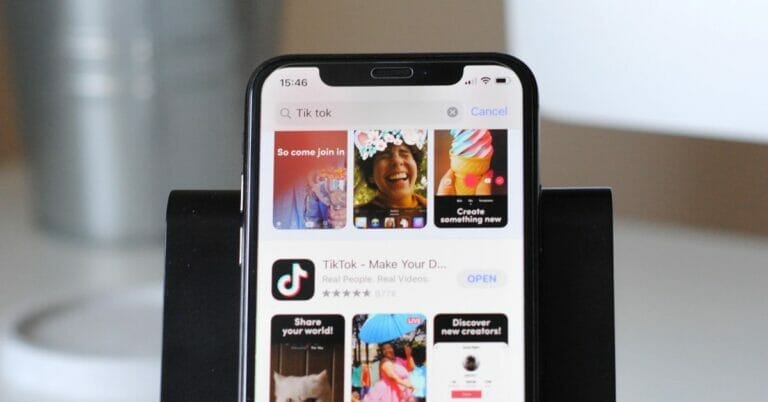I’m going to cut right to the chase – law firms need qualified leads to stay in business, and more of them to grow.
A lead is any individual — or organization if you’re more of a B2B lawyer — who has expressed interest in your law firm or legal services. This interest can take many forms such as requesting a meeting, sharing a phone number, or submitting their email in exchange for a “lead magnet” like a free webinar, ebook or other informative piece of content.
And a qualified lead is one whose problems can be solved by your service. For example, let’s say you’re an immigration lawyer who focuses on removal defense. For you, a lead is someone who says “I need an immigration lawyer,” but a qualified lead is someone who needs an immigration lawyer because their spouse relative just received a Notice to Appear (NTA). Not everyone who needs an immigration lawyer will need your services, but everyone who’s received an NTA will.
So, where do these qualified leads come from?
Lead generation is basically the act of generating interest in your business, product, or service. You can do this through marketing (especially social media marketing – I’ll get to this later), but many lawyers actually rely on lead generation companies to do their marketing for them when they don’t want to, or don’t know how to, do it themselves.
There are hundreds of lead generation companies and services on the market today, but not all deliver high quality leads. Most lawyers have heard of Martindale-Avvo, one of the leading websites for consumer information on attorneys. Martindale-Avvo owns a number of popular lawyer “marketplaces” or databases, including Lawyers.com and Nolo, and the idea behind them is that the sites enable lawyers to post their names, addresses, phone numbers, and website (often for a fee) for the general public to search through.
This may sound like a great idea, and indeed these sites help many law firms get clients. But the short-term benefits of using these lead generation services sometimes come at a longer-term cost for lawyers who rely heavily on them.
In this article, I want to unpack what that means, why buying leads from companies may compromise your brand and may not be worth it, and some other ways to get leads while building your brand and firm at the same time.
How trustworthy are lead generation companies?
Let’s talk about Avvo – one of the biggest, most popular lawyer marketplaces. Some lawyers don’t know too much about how it works and that it has a questionable reputation, so let’s start with some background information.
First off, Avvo mines publicly available information and creates profiles for lawyers regardless of whether or not the lawyer is on board, and whether or not that information is accurate. Lawyers are able to “claim” their Avvo profile, but for those who don’t, that inaccurate or incomplete information will still be published on their Avvo profiles.
Avvo also gives lawyers a score on a scale of 1 to 10. This score is based on reviews, but also on the information on the lawyer’s profile (which, as I noted, can be inaccurate or incomplete). The less information there is in a lawyer’s profile, the lower your Avvo score. Lawyers are not permitted to delete their Avvo profiles, so many feel forced to participate in the Avvo system simply to protect their brand and public image.
If that last part raised an eyebrow, you’re not alone.
In 2016, a Chicago attorney sued Avvo, claiming the company illegally uses professional information on the site without permission. The lawsuit alleges that an Avvo profile lists the attorney’s name and professional credentials, without the attorney’s permission, and then competitors pay to put their own ads on the attorney’s Avvo page. And if you want to keep competitors off your Avvo profile, Avvo requires that you pay them a fee.
Ok so let’s say you pay the fee, get competitors off your profile and build out your immigration lawyer profile. Are you really getting qualified leads through Avvo? The broad answer is that it’s just too big to truly get you qualified leads that will, overwhelmingly, lead to paying clients. Others have written about inconsistent Avvo sales reps and the high cost and relative low quality leads you get.
But most importantly, however, is the mindset of a person going to Avvo. Clients that come to Avvo to shop for an immigration attorney are in the same mindset as someone going to a grocery store when they’re hungry for pasta but don’t know what kind to get, whether they want sauce or olive oil, and so on.
If a client finds you on Avvo, you’re just a profile, a set of reviews, and a price range that works or doesn’t work for them. In a sense, this is hijacking your brand, and to me, that’s not worth short-term clients.
Avvo is just an example, albeit one of the biggest, of law firm marketplaces like NOLO and Martindale that, yes, help lawyers generate leads, but also more so force lawyers into their ecosystem rather than truly empower them.
So, are there lead generation companies and services that help lawyers build their firms while retaining their personal and law firm brand?
Lead generation companies that won’t destroy your brand
You’ve got to keep filling your sales funnel if you want to grow, so the temptation to buy leads is real. And buying leads, rather than organically generating them, can be easier and less time-consuming, which is the allure, and which is why so many people cave in and pay Avvo.
But true law firm lead generation companies do just one thing, and the good ones become experts at it: generating high-quality, affordable leads using social media, content marketing, and more without bigger, sometimes ulterior motives.
These companies optimize their marketing and advertising strategies, and through social media campaigns, search engine optimization and more, they make sure they are in the right place at the right time to get potential clients interested and ultimately share their contact information.
Buying high-quality leads is a seriously good option, and can be especially tempting to those immigration lawyers with some money to spend and less time to invest in organic lead generation. But if you are interested in hiring a lead generation company, do plenty of research first. For example, a few specialized smaller options might look like AskEllis or US Immigration Leads.
Social media + chatbots: DIY lead generation doesn’t have to be difficult
Here’s the biggest downside to paying for legal lead generation: once you stop paying, the leads stop rolling in. The ideal situation is to find a sustainable lead generation strategy, but what that really translates to is that, eventually you’ve got to do it yourself. But it doesn’t have to be hard, or expensive. The key is social media marketing to bring the leads in, and an automated tool like a chatbot to qualify those leads at scale.
Social media marketing may seem overwhelming, but it’s vital to growing your business. It’s so important that 97% of marketers are using social media and 78% of salespeople outsell their peers by using social media for their business.
Everyone and their grandmother are already using social media every single day, and because of this, lead generation is one of the top benefits of social media marketing. Kathia Pereira — immigration lawyer and social media influencer — is an excellent example of social media-fueled lead generation.
Kathia is an immigration lawyer who is a pro at turning her social media followers into clients. With over 500,000 followers across these various social media platforms, when Kathia publishes a video on YouTube or Facebook, she might receive over 100 inbound messages in one hour. That adds up to hundreds or potentially thousands of people trying to talk to Kathia on any given day, which sounds amazing on its face, but it also means that higher volume, especially at this level, is way more than one person or small team can handle.
Kathia’s secret to handling all these qualified in-bound leads is automation:
Kathia uses YoTengoBot, a bilingual immigration chatbot that I founded to help me automate my own immigration law firm’s intake process, to automate her massive flow of inbound leads. Customers want answers right away, and chatbots are poised to provide that to them, in real-time and on-demand.
Basically, YoTengoBot is an AI-powered chatbot that can have conversations with potential customers on behalf of your law firm. It works 24/7 and can have an unlimited number of conversations at the same time. And that’s important – studies have found that if a service provider doesn’t respond to a prospective customer inquiry within five minutes, they run the risk of losing that prospect.
And being fast pays. 78% of customers buy from the company that responds to their inquiry first. According to a study conducted by Drift, only 7% of companies are responding to inquiries in five minutes or less.
In other words, using a chatbot like YoTengoBot to talk to and qualify leads that you are able to get yourself through a specialized lead generation service or through your own social media or other marketing campaigns, will increase your response time and therefore increase customer satisfaction.
Where will you find new clients?
Developing a steady stream of qualified leads is vital to growing your business. Paying someone else to handle lead generation is possible — and popular — but proceed with caution! If you decide to go the paid route, ask colleagues for recommendations, and carefully vet potential lead generation companies.
Interested in generating your own organic leads? That’s great! The process might seem overwhelming now, but fortunately, there are mountains of amazing content available to guide an immigration lawyer like you. Check out Hubspot’s guide to lead generation or the Motley Fool’s sales lead guide for small business. I’ve also written about social media marketing for lawyers.
And if you want to learn more about how YoTengo Bot can help you and your firm talk to more prospective clients, we’re launching a free version of the bot for a limited number of initial users. So shoot me an email if you want in!




